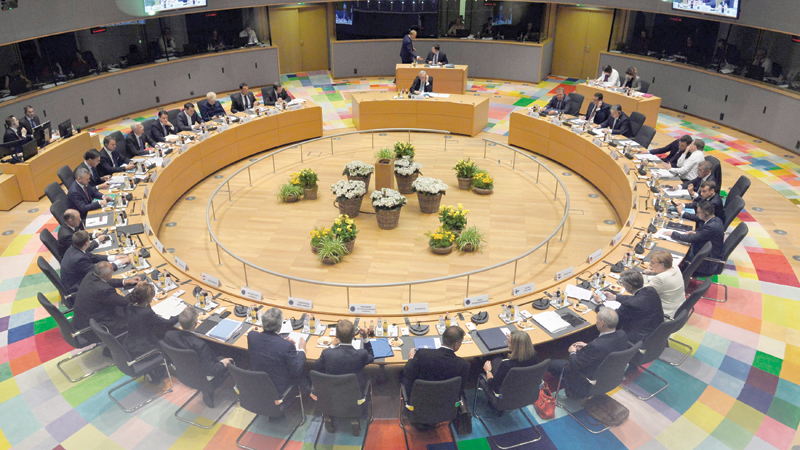

Brussels: European leaders met on Thursday to seek a candidate for the EU’s top job, with all to play for after Brussels’ political factions failed to unite behind a single figure.
Arriving at the summit, French President Emmanuel Macron dismissed the idea that the new president of the European Commission should be chosen by the European Parliament.
The French leader said the two-day summit would demonstrate that the parliamentarians’ so-called “Spitzenkandidat” or “lead candidate” process is unworkable and that the union’s 28 national leaders must decide on the nominee.
“Maybe we’ll have a name at the end of this Council. But we should be realistic, it’s not certain,” he said.
Germany’s Chancellor Angela Merkel defended the political process, and noted that whichever name the leaders come up with will still have to be approved by a majority of MEPs in the incoming assembly.
“We will discuss this openly, and so it may be that there is no result today, but from my point of view that is not so dangerous,” she said, as several officials predicted another summit would be held on July 1, the day before the new parliament opens.
“Yesterday I was cautiously optimistic. Today I’m more cautious than optimistic,” warned Donald Tusk, the president of the leaders’ European Council, after pre-summit talks with Macron and Merkel.
None of the leading names to have emerged during last month’s election has won consensus support from the four main parliamentary parties to replace Jean-Claude Juncker as president of the EU’s executive arm.
Other jobs up for grabs include speaker of the European Parliament, which will sit for the first time on July 2, and foreign policy chief.
National leaders want to control the process and dole out the most senior jobs in a way that balances men and women, east and west Europe, small countries and large.
But the results of May’s European elections forced the main conservative, socialist, liberal and Green parliamentary blocs to form a majority coalition. The parties, while working to draft a joint political programme, have not united behind a particular package of candidates. “My understanding is that it is a battle the parliament cannot win,” said Philippe Lamberts, the Belgian joint leader of the Greens group.
Lamberts said German conservative MEP Manfred Weber, whose centre-right EPP group took the biggest single bloc of seats, had failed to win over Dutch social democrat Frans Timmermans’ S&D or the liberal Renew Europe group, which is backed Danish commissioner Margrethe Vestager.
Whoever is eventually the nominee must win the backing of least 21 of the 28 EU leaders and a majority in the 751-member parliament.
— AFP
Oman Observer is now on the WhatsApp channel. Click here



